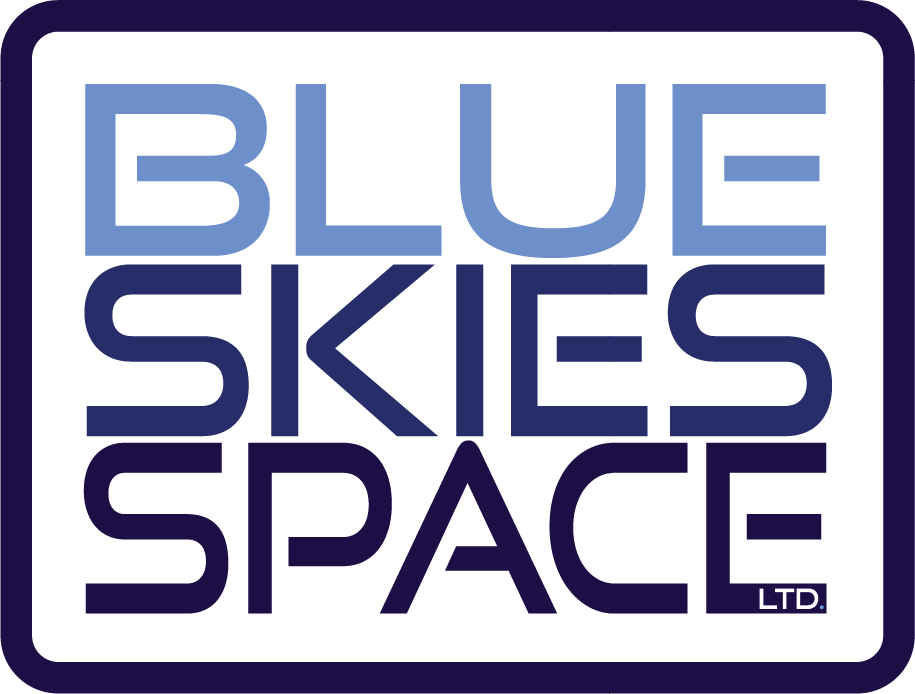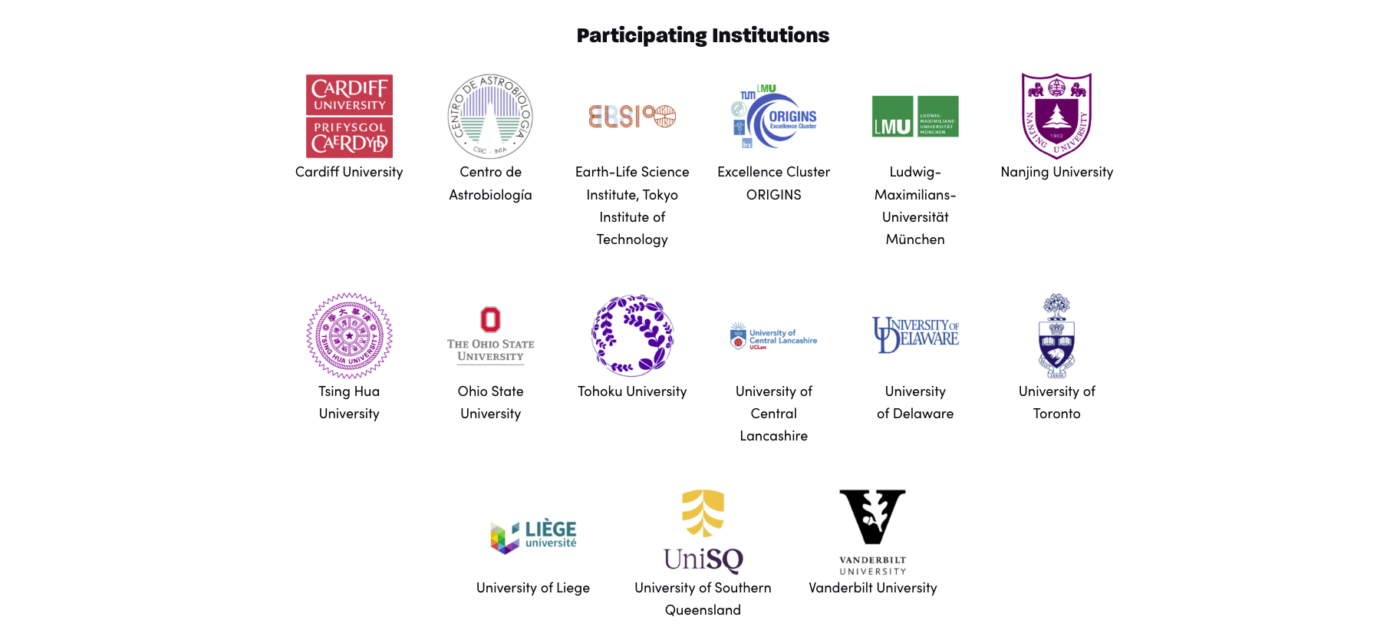Blue Skies Space Ltd. has confirmed that scientists from fourteen universities across the world have joined its first space science mission, Twinkle, as the initial group of Founding Members.
The Founding Members include institutions from North America (Vanderbilt University, Ohio State University, University of Toronto), Asia-Pacific (Nanjing University, National Tsing Hua University, University of Southern Queensland) and Europe (Ludwig Maximilians Universität, Cardiff University, University of Central Lancashire). These Founding Members are now working together to design a powerful scientific program ahead of the satellite launch, making this a truly global and innovative space science collaboration. They join five other institutions who have also secured telescope time for their research teams.
Once launched into low-earth orbit in 2024, the Twinkle satellite will deliver visible and infrared spectroscopy of thousands of targets, enabling Twinkle members to produce transformative research on exoplanet atmospheres, solar system objects, stars, and stellar discs as they aim to answer some of humanity’s greatest questions. Twinkle will provide structured science surveys which will operate at a large scale, providing more than 70,000 hours of observational data during its lifetime.
Professor Keivan Stassun of Vanderbilt University explains why his institution became the first Founding Member, “Twinkle is a unique opportunity for our early-career researchers, especially graduate students and postdocs, to be on the leading edge of exoplanet atmosphere science and enables them to engage with a positive, cooperative, international collaboration.”
Highlighting the value of global alliance in science, Professor Ing-Guey Jiang at the National Tsing Hua University, the second Founding Member says, “Joining Twinkle means we could expand our research projects to a much larger collaboration with many more leading international teams from around the world.”
Twinkle is the first in a series of scientific satellites from Blue Skies Space. Each will combine the expertise of an international science team with proven satellite and payload suppliers, to deliver an advanced satellite at a fraction of the cost and time of a typical space mission of this complexity. Membership is open to scientists from all backgrounds and experience levels and available within days.
Professor Giovanna Tinetti, Chief Scientific Officer, Blue Skies Space, says:
“Exoplanet research is an exciting and fast growing international endeavour. We are delighted to see that Twinkle’s collaborative model is attracting scientists of all career stages from around the world.”

ABOUT TWINKLE
Twinkle is the first in a new class of science satellites that will deliver ground-breaking data to astronomers worldwide. The seven-year space mission, launching in 2024, will provide scientists with greater insights into the composition of exoplanet atmospheres, solar system objects, stars, and stellar discs. The satellite is based on a high-heritage Airbus Defence and Space platform and will carry a 0.45 m telescope with a visible to infrared spectrometer providing simultaneous wavelength coverage (0.5–4.5μm), enabling a deeper understanding of worlds outside and within our solar system. Twinkle’s science programme is delivered through a growing international collaboration of scientists who will gain access to the massive data set from the observation of 1000’s of objects during the mission’s lifetime. Twinkle is the first commercial satellite being launched by UK-headquartered Blue Skies Space Ltd.

ABOUT BSSL
Blue Skies Space is an independent company that operates satellites to support the global research community. Through its fleet of rapidly delivered space and earth observational satellites, it optimises an innovative “space-science-as-a-service” subscription model, to help scientists answer some of the greatest questions of humankind.
MEMBER QUOTES
Dr Ming Yang – Nanjing University
“One of the most fascinating things about Twinkle is that it could help us understand more about exoplanets. Exoplanets have made great progresses in the last three decades, but many questions still remain. What’s more, Twinkle takes a new way of using a commercial satellite for scientific collaboration. This could be a possible way of scientific research in the future. Especially with the rapid development of space astronomy, more and more fields need space telescopes. Twinkle is helpful to explore this.”
“Ground-based telescopes can provide useful assistance to space observation. Our exoplanet research group at Nanjing University will have several small telescopes in western China. They can make long-term monitoring to get better transit ephemeris. This will help Twinkle determine the most appropriate observation window.”
Professor Matt Griffin – Cardiff University
“It’s exciting to be a part of this mission that will be built and launched in just a few years, much faster than the normal timescale for space astronomy satellites. Its sensitive surveys of exoplanets and of bodies in the solar system will be unique and will lead to a huge improvement in our understanding of how planetary systems, including our own, have developed and evolved. Twinkle is in the vanguard of what is without doubt one of the most important themes of astronomy research for the coming decade.”
Professor Ing-Guey Jiang – National Tsing Hua University
“Joining Twinkle, NTHU, becomes the 1st institution in Taiwan participating in a space mission dedicated to the study of exoplanets”
“Joining Twinkle, will provide an excellent opportunity to astronomers in Taiwan to investigate exoplanets”
“Joining Twinkle, we could expand our research projects to a much larger collaboration with many more leading international teams in the world”
Professor Derek Ward Thompson – University of Central Lancashire
“The Twinkle Space Mission offers some very exciting scientific possibilities. I am particularly fascinated by the prospect that we will be able to study the atmospheres of planets around other stars. This offers the opportunity to tell whether a particular planet is earth-like and potentially habitable or not, thereby increasing our ability to assess the likelihood of life elsewhere in the Universe.”
Dr Duncan Wright – University of Southern Queensland
“Twinkle is an exciting mission for the University of Southern Queensland because it provides guaranteed access to space telescope spectra of exoplanets where we get to help decide what’s observed – that’s a unique opportunity. The data will be used for teaching our undergraduates, training our next generation of astronomers, and, of course, to study the atmospheres of exoplanets. As founding members for the Twinkle mission, we are able to help direct Twinkle’s science focus, working together to make the mission a success.”
Nataliea Lowson – University of Southern Queensland
“Twinkle has provided me with the opportunity to not only gain experience in planning an international exoplanet space satellite mission, but to also be a voice at the science decision-making table.”
“Twinkle enables me to be directly involved in a mission that will have great impact in my field of expertise (exoplanet atmospheres). The University of Southern Queensland has a strong interest in expanding our knowledge in space instrumentation and innovation. As a founding member, Twinkle enables the University of Southern Queensland to be involved in a world class space mission, therefore, providing our institution with access to cutting edge instrumentation and innovation. Such an experience will not only help shape the future of the University of Southern Queensland’s involvement in space exploration, but Australia as a whole.”
Professor Keivan Stassun – Vanderbilt University
“Twinkle is a unique opportunity for our early-career researchers, especially graduate students and postdocs, to be on the leading edge of exoplanet atmosphere science and to do so as part of a positive, cooperative, international collaboration”
